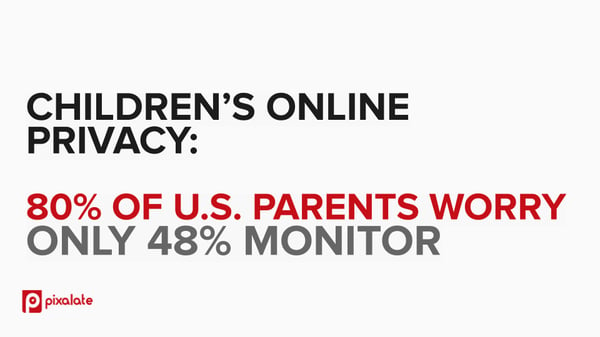
This week's review of ad fraud and privacy in the digital advertising space.
New data showing how few parents monitor their kids' #online safety comes as #POTUS calls for stronger protection. @PixalateInc & @CommonSense Media on the need to update the law that limits data collected about children. #abc7now pic.twitter.com/VqeS0yr0qU
— David Louie (@abc7david) March 3, 2022
Jalal Nasir, CEO of Pixalate, shared his views on children's privacy online with David Louie from ABC7 News. In the interview, Nasir expressed his concerns over children's privacy online and how parents, app stores, and regulators can improve it. He also shared data from a recent Harris Poll, conducted in conjunction with Pixalate, about how parents view children's online privacy.
"Half of the participants in the survey said that they do not regularly monitor what their kids do online. It was shocking because 80% of them said that they are concerned over their children's privacy online," said Nasir.
"The Harris Poll results should be a wake-up call considering the two largest app stores — Google Play and Apple — only provide a target age range for 200 apps at a time," stated Nasir. “Pixalate’s research shows there are nearly 400,000 child-directed apps in the Google and Apple app stores, about 40% of which collect sensitive data like geolocation. These poll results beg the question of whether the app operators are doing this with parental consent as required by COPPA.”
Learn more in our blog and download the report to gain a full overview over children's privacy online.

Pixalate revealed the results of a Harris Poll survey examining American parents’ views about children’s online privacy. The survey found that less than half of parents of children under 13 (48%) say they monitor their children’s activities on apps daily, while more than one-fifth (21%) say they never check to see if those apps track their children’s precise GPS location.
Despite those numbers, 80% of parents say they worry about their children's privacy when using those apps, with 73% saying they're concerned about their children's location being tracked.
Learn more from the press release.

In his first State of the Union speech, President Biden emphasized the necessity to protect children's mental health. He vowed to "strengthen privacy protections, ban targeted advertising to children, and demand technology companies stop collecting personal data on our children," according to the White House's factsheet.

Meta, Twitter, and YouTube all disabled running ads and monetization on their platforms for Russian media. "Facebook’s head of security policy, Nathaniel Gleicher, tweeted: “We are now prohibiting Russian state media from running ads or monetizing on our platform anywhere in the world. We also continue to apply labels to additional Russian state media.” He also said that Facebook and Instagram were taking steps to protect Ukrainian users' identities," per MediaPost.
Furthermore, many corporations, including Apple, Dell, Exxon Mobile, DirecTV, and Roku pulled back from Russia after its invasion of Ukraine. "DirecTV dropped RT America, the sister network to Russia Today, and Roku said it was removing RT from all of its channel stores, including those in the U.S. DirecTV and Roku, along with Dish Network, are among RT’s largest distributors," informs MediaPost.
Sberbank is a state-owned Russian banking and financial services company. It is Russia’s largest financial institution, according to the U.S. Department of Treasury.
Pixalate has identified at least six Sberbank websites (download list here). At least one of them — onlaine-sberbank.ru — is using Google Ads for monetization as of March 2, 2022.
In a short duration test on March 2, 2022, Pixalate observed the following advertisers appearing to buy ads on the website — several of which are (or are owned by) Fortune 500 companies:
*By entering your email address and clicking Subscribe, you are agreeing to our Terms of Use and Privacy Policy.
These Stories on Weekly Recaps
*By entering your email address and clicking Subscribe, you are agreeing to our Terms of Use and Privacy Policy.

Disclaimer: The content of this page reflects Pixalate’s opinions with respect to the factors that Pixalate believes can be useful to the digital media industry. Any proprietary data shared is grounded in Pixalate’s proprietary technology and analytics, which Pixalate is continuously evaluating and updating. Any references to outside sources should not be construed as endorsements. Pixalate’s opinions are just that - opinion, not facts or guarantees.
Per the MRC, “'Fraud' is not intended to represent fraud as defined in various laws, statutes and ordinances or as conventionally used in U.S. Court or other legal proceedings, but rather a custom definition strictly for advertising measurement purposes. Also per the MRC, “‘Invalid Traffic’ is defined generally as traffic that does not meet certain ad serving quality or completeness criteria, or otherwise does not represent legitimate ad traffic that should be included in measurement counts. Among the reasons why ad traffic may be deemed invalid is it is a result of non-human traffic (spiders, bots, etc.), or activity designed to produce fraudulent traffic.”

